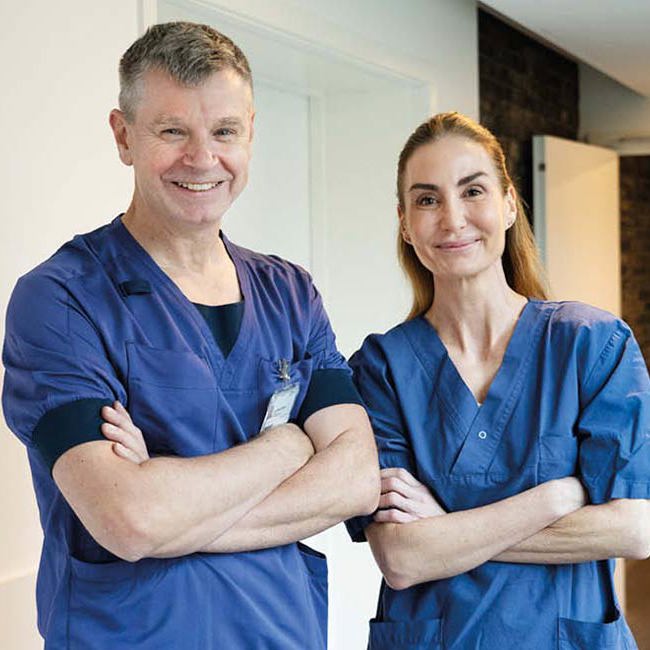Effective relief from atrial fibrillation
Get safe and effective ablation treatment at Denmark’s largest private hospital.
&width=188&height=188&quality=70)
Ablation for atrial fibrillation
Atrial fibrillation can cause bothersome symptoms and significantly reduce your quality of life. Fortunately, most people can be helped with the right treatment. At Aleris in Copenhagen, we offer state-of-the-art ablation therapy for atrial fibrillation — with no waiting time.
Atrial fibrillation, also known as AF or AFib, is the most common type of heart rhythm disorder. Many people worldwidw are diagnosed with it each year. While not dangerous in itself, AF can cause unpleasant symptoms and increase the risk of blood clots and stroke.
Safe and effective treatment
Ablation is a safe and effective procedure that helps restore normal heart rhythm in 80–90% of patients with atrial fibrillation. It works by disabling the cells that disrupt the heart’s electrical signals.
At Aleris, we offer the latest ablation techniques — PFA (pulsed field ablation) and RFA (radiofrequency ablation) — performed by leading heart specialists.
As Denmark’s largest private hospital, we provide nationwide cardiology expertise, a 24/7 on-call heart care line, and follow-up consultations at 3 and 12 months — so you’re supported every step of the way.
Is ablation the right treatment for you?
If you’re experiencing troublesome symptoms due to atrial fibrillation — or side effects from your heart rhythm medication — ablation may be a good option for you. You may feel that your physical activity is limited, or that fear of the next episode is stopping you from travelling or taking part in social events.
Ablation offers many benefits. It provides fast and effective relief from symptoms and can often reduce or eliminate the need for medication and its side effects.
Treatment under full anaesthesia
Aleris is one of the few hospitals in Denmark to offer ablation under full anaesthesia. This allows our specialists to work with greater precision while ensuring that you experience no discomfort during the procedure. For example, the required ultrasound examination via the throat is performed after you are fully anaesthetised.
After the procedure, you’ll need to stay in bed for about an hour, and most patients are able to go home just four hours after treatment.
